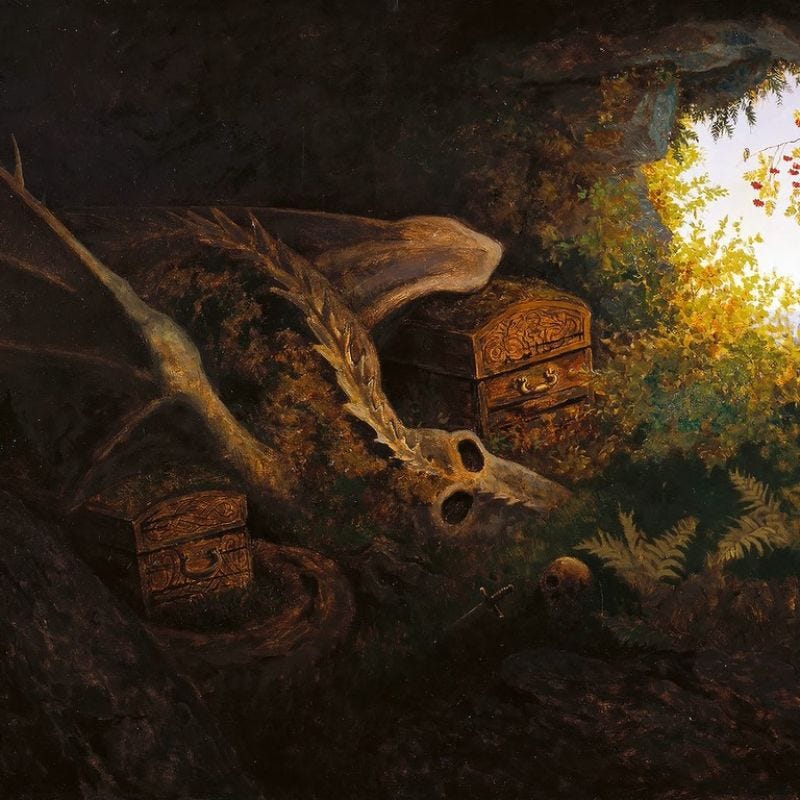People nowadays - at least in my opinion - are beginning to know Varg Vikernes (or, under his legal name these days, Louis Cachet) less as the pioneer of many subgenres of black metal, most notably atmospheric black metal; and more for his incessant ranting in the style of “old man yells at cloud” on Twitter that ironically does nothing but making himself look like a joke to the young folks who know about him from his cult-status “Filosofem”, while the longtime followers of his would shake their heads as he becomes more of the aforementioned.
Part of the reason why this is the case is the rather lackluster track record since the re-recordings of “From The Depths of Darkness”. This is not to dismiss the artistic direction of Burzum, because there are indeed black metal acts that also do ambient/experimental folk as parts of their discographies: think October Falls, Akhlys, and Darkspace: the problem here is how painfully uninspired Varg sounded in these releases.
In that sense, it’s understandable how people weren’t quite interested when they heard Varg announcing his next work under the name - which is “The Land of Thulê”. I know I was.
So imagine my surprise to find how reinvigorated the composition is in this album: I’d even go the extra mile to say this is arguably it possesses the most solid songwriting since “Fallen”, which was released 13 years ago.
“The Land of Thulê” - in essence, is an atmospheric post-black metal album, with all the elements of the genre: the arpeggiated melodic riffs, lead lines in breakup tone, and mostly slow in tempo with occasional blast beats (found in “The Hidden Name”). The riff DNA, however, is still uniquely Burzum: there’s a touch to his riffs that many bands of the genre have been inspired by, and even tried to imitate, but none has managed to replicate it.
Given the rather limited resources and inexperience with GarageBand - this is the first time Varg uses the software to record music, after all - I’m quite astounded by the atmosphere he was able to create through the musical arrangement. Astounded, but not surprised, because if anyone knows Burzum, they too will know how he was able to create a lot of music - with a lot less at hand (see also: 1999’s “Hliðskjálf”) - accidentally creating the foundations for numerous genres in the process, and that judging Burzum based on the production value is a rather ridiculous notion.
Is “The Land of Thulê” a good album? While it could be better, the answer is a “yes”. Is it better than his releases within the last 10 years or so? Definitely yes.
The way it was composed and arranged serves as a reminder to us all why Varg - as a musician (my utmost emphasis on this account) - and his works are considered pioneering in the annals of black metal and its offshoots a la ambient and dungeon synth. It can be regarded as a return to form of Varg Vikernes and Burzum. That said, though, one should not expect the album to be able to fare with his earlier works, especially with the “peak”-era releases such as “Hvis lyset tar oss”.
All in all, I truly believe that “The Land of Thulê” is a work that can only be evaluated and judged based upon the listening experience of oneself instead of reading one’s review.






